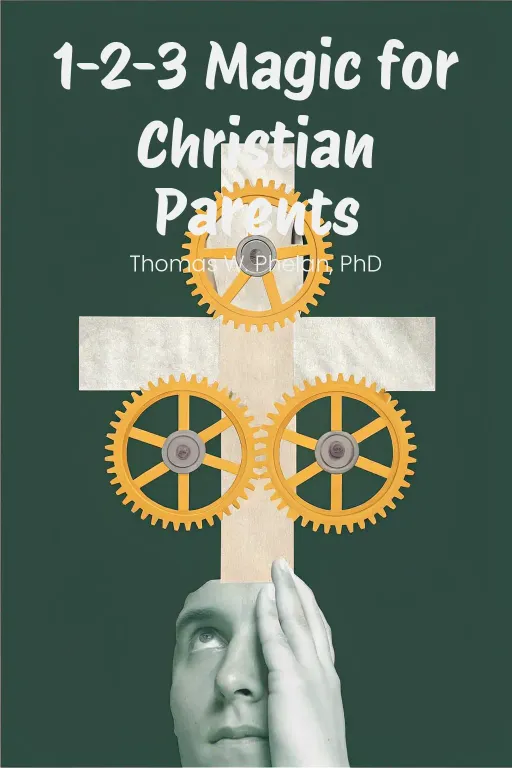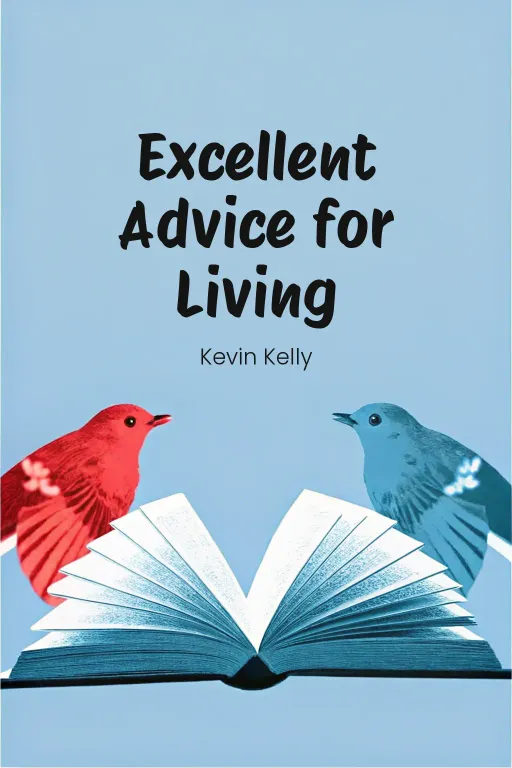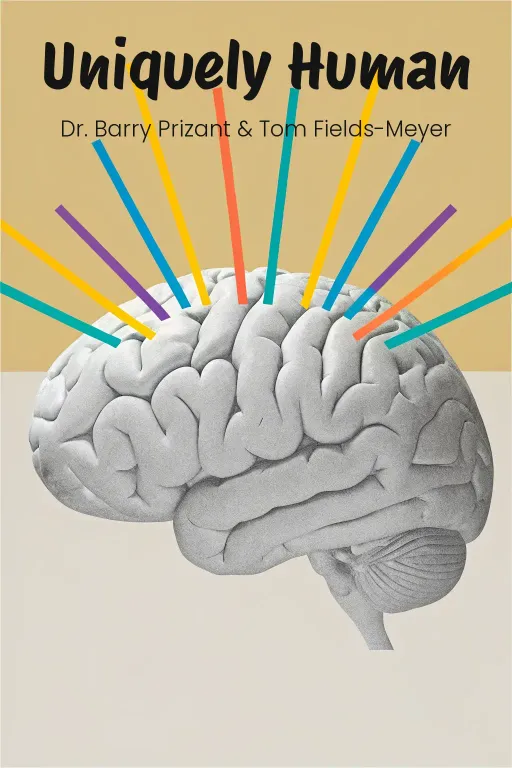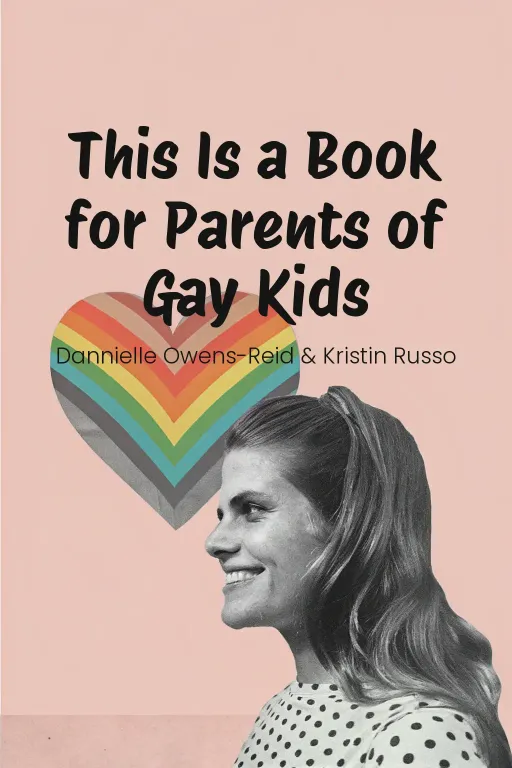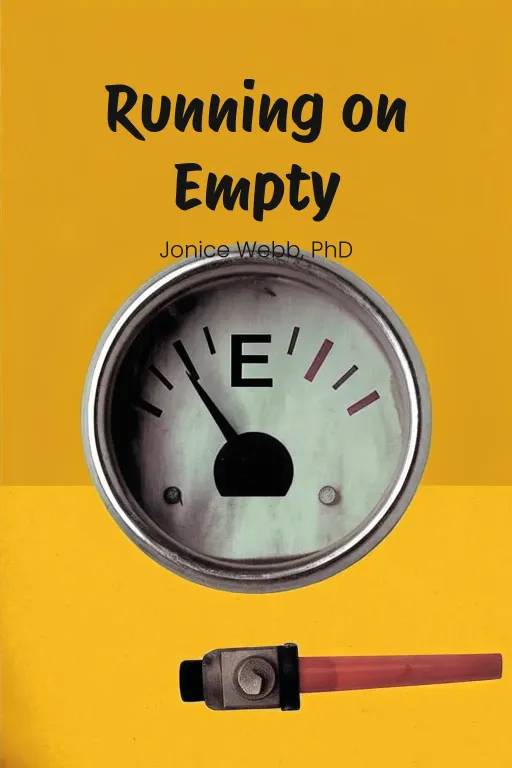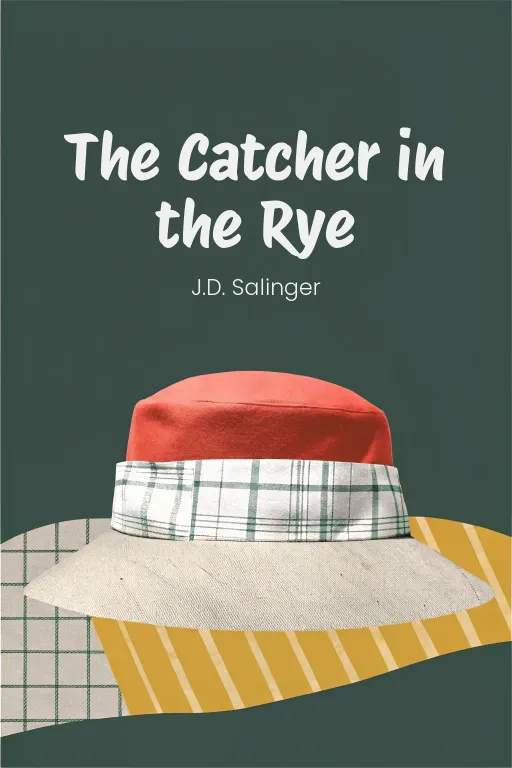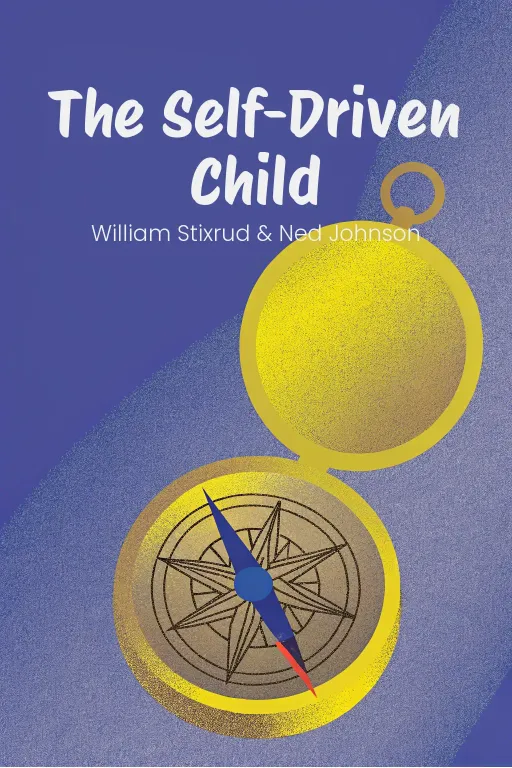
Raising Adults: Are You Helping or Hindering?
Podcast by The Mindful Minute with Autumn and Rachel
Break Free of the Overparenting Trap and Prepare Your Kid for Success
Raising Adults: Are You Helping or Hindering?
Part 1
Autumn: Hey everyone, welcome! Today we're tackling a really interesting, and frankly, a little unsettling topic: how modern parenting “might” be accidentally hindering our kids, instead of helping them soar. Rachel: Exactly, Autumn. We're talking about overparenting - the helicopter parents, the snowplow parents, all that jazz. You'd “think” more involvement is automatically a good thing, right? But what if all that hovering is actually backfiring, and crippling their ability to become self-sufficient, resilient adults? Autumn: That's the core argument of Julie Lythcott-Haims' book, How to Raise an Adult. She really digs into what happens when parents basically micromanage their kids' lives—making all their decisions, rushing in to fix every little problem, obsessing over achievements instead of personal growth. The result? A whole generation struggling with independence, plus a really alarming spike in anxiety and depression. Rachel: Not to mention the complete lack of basic life skills. We're talking about college students who literally can't do their own laundry or schedule a doctor's appointment. Lythcott-Haims really examines how we got here – and, more importantly, how we can actually start to turn things around. Autumn: So, today we're going to dive into five key areas. First off, we'll expose the hidden downsides of helicopter parenting. Because honestly, it's not just the kids who suffer. Then, we're going to explore how this trend is contributing to this mental health crisis we're seeing in Gen Z. Rachel: After that, we're going to switch to solutions, which I like to call "parenting with a dose of tough love." We'll talk about practical ways to give kids more room to develop their independence. And then we're going to challenge this modern obsession with measurable success, and rethink what it really means to raise a capable, well-adjusted adult. Autumn: And finally, we’ll touch on something that often gets overlooked: how parents can actually grow and thrive “alongside” their kids. It's not just about them; it's about us, too. Rachel: So, if you're a parent, an educator, or even if you've just been wondering why so many young people seem stressed out but unprepared, this is the conversation for you. Let's get to it.
The Dangers of Overparenting
Part 2
Autumn: Let's dive into a central criticism of overparenting—how it “really” stifles independence. There’s this widespread idea that if we can just shield our kids from every discomfort or danger, we’re setting them up for success, right? But actually, this kind of micromanagement often does the opposite. Kids end up missing out on key opportunities to build confidence, resilience, and problem-solving skills. Rachel: Exactly! It's like we're trying to cultivate these hardy plants, but we keep them in a greenhouse their whole lives. Then, “bam”, they’re exposed to the real world and they just can't handle it. Remember the park example from the book? This kid, Sawyer, hesitates at the top of the slide, and instead of letting him figure it out, his parents are right there, practically broadcasting their own anxieties. It’s total protection, but also, anxiety transmission. Autumn: Yes, and the sad part is, this pattern starts so early. Toddlers won’t learn how to climb safely if we’re always right behind them, ready to catch them. And then, as they get older, they might hesitate to try anything new without someone holding their hand. Lythcott-Haims “really” nailed it when she said independence isn’t innate; it’s a learned skill. If kids aren’t given the space to make decisions, to face small risks, and even stumble a bit, they’re robbed of that learning process. Rachel: And it's not just about the little things, like sliding or climbing, is it? It's this broader cultural shift where unsupervised exploration has practically disappeared. Think about modern playgrounds... They're basically padded rooms! When was the last time you saw a jungle gym that felt genuinely risky, with monkey bars more than three feet off the ground? Autumn: Right! And it's not just playgrounds—parents are chaperoning everything: walking to a friend’s house, biking to school, even figuring out homework. We’ve traded autonomy for this constant safety net. And while all this involvement is well-intentioned, Lythcott-Haims points out that it sends a harmful message: "You’re not capable without me." Rachel: Okay, but let’s play devil's advocate for a second. What about “real” dangers? I mean, parents are bombarded with news stories about kidnappings or accidents. You can't “really” blame them for being paranoid, right? There's that whole "stranger danger" thing from the '80s that’s still stuck in our heads. The Adam Walsh case, things like that... It changed everything. Autumn: Absolutely, Rachel. But the data doesn’t really support the level of fear we seem to have. I mean, statistics show that over 99% of missing children are “not” victims of stranger abduction. And yet, we still hover because those one-in-a-million stories dominate the narrative. Lythcott-Haims even talks about her own anxiety around this—when her son walked home from a friend’s house alone, she was compulsively checking the clock, even though she knew he was safe. Rachel: So, it’s not so much about the “actual” risk, but the “perceived” risk. And that perception “really” has a hold on us. We're so scared of what “might” happen that we don’t let our kids face “any” real-world challenges, even the small ones. And doesn’t that ironically make them less prepared later on? Autumn: It’s a vicious cycle, isn’t it? Parents overprotect because they’re anxious, and then that overprotection actually intensifies the anxiety—for everyone. And then there’s this societal piece that Lythcott-Haims explores. It’s not just fear driving this; legal and social pressures amplify it. Rachel: We talking about parents like Debra Harrell, right? She let her nine-year-old play at a nearby park while she worked, and suddenly she’s arrested for neglect! A generation ago, that wouldn’t even raise an eyebrow. Now? Let your kid roam free, and you're branded irresponsible or worse. Autumn: Exactly! Or Kim Brooks, who briefly left her son in the car to run a quick errand and ended up being reported to the police. These aren't extreme lapses in judgment; they're perfectly reasonable parenting decisions that show faith in a child's basic competence. But today’s standards equate "constant supervision" with "responsible parenting," making independence almost taboo. Rachel: And that peer pressure from other parents is a big factor, too. Remember the mom in the book who encouraged her daughter to bike to school? One parent complained, and suddenly that little step toward independence was shut down. It's like, "How dare you let your kid be self-reliant when the rest of us are helicoptering?" Autumn: Right. And that community policing of parenting choices just perpetuates the cycle. Parents who “want” to foster independence often feel like they can’t, because of the judgment, or the real fear of legal trouble. It’s a lose-lose—kids miss out on autonomy, and parents feel trapped between their instincts and societal expectations. Rachel: It strikes me that, for all the worry about kids’ safety, the “real” danger might be what this is doing to their development. Kids leave home without basic adulting skills, like doing laundry, handling conflict, or even just tolerating frustration. And the kicker? All this hovering doesn’t just mess with kids’ confidence; it’s burning “parents” out too. Autumn: That's such a critical point. Overparenting places immense pressure on the whole family. Parents are walking on eggshells to avoid judgment and pushing themselves to meet impossible standards. Meanwhile, kids are struggling with anxiety, time management, and problem-solving. Ultimately, Lythcott-Haims argues that this setup just doesn't serve anyone well. It’s a cycle of exhaustion and stunted growth.
Psychological and Developmental Consequences
Part 3
Autumn: Understanding the dangers of overparenting naturally leads us to explore its persistence and its consequences. We're diving deep into the psychological and developmental toll—on kids, and indirectly, on parents. We're analyzing the direct impacts while starting to bridge toward solutions. Rachel: Right, we're not holding back here. We're diving into the anxiety, the depression, the dependency—the real psychological battle scars that kids carry from sheltered, over-controlled childhoods. Let's be clear, this is where the why behind all this snaps into sharp focus, right? Autumn: Exactly. Let's start with mental health, which is one of the most alarming consequences that the research highlights. The numbers really paint a sobering picture. Back in 2013, the American College Health Association surveyed students, and it showed that over half—51.3%—reported feeling overwhelming anxiety during the previous year. And Rachel, a staggering 84.3% said they felt burdened by their responsibilities. We're talking about almost every student struggling, in some way, with day-to-day life. Rachel: Wow, those numbers are pretty chilling, aren't they? I mean, these are young adults, technically, who are supposed to be exploring, learning, and gaining independence! And instead, they're feeling paralyzed by deadlines, laundry, making dinner? It's like we've thrown them into the world without a user manual, and they're just floundering. Autumn: And it starts early. Helicopter parenting—or what psychologist Madeline Levine describes as doing for children what they could “or almost could” do for themselves—teaches kids to rely on others to navigate life. The irony is that this "help" stunts their growth at every stage. When parents shield children from every challenge, those kids miss out on something called mastery—that sense of confidence and satisfaction from independently overcoming obstacles. Rachel: It's like we've got a generation who've never even passed the first level of adulthood. Forget levels two or three, they haven't even had those small failures that teach patience, problem-solving, or resilience. Then, boom, they're launched into adulthood, trying to play the game on "expert mode" without even reading the instructions. Autumn: That's a very visual way of putting it, Rachel, but it's spot on. Without the opportunity to stumble and figure things out, kids don't build the neurological and emotional tools they need. Research even points to increased separation anxiety and social struggles later in life. They haven't learned to regulate their emotions or deal with setbacks independently. They just haven’t been forced to really think or make decisions for themselves. Rachel: Right. And speaking of dealing with setbacks… I remember that UCLA study. Those college students couldn't handle basic roommate conflicts, like a messy apartment or a professor’s critical feedback. Instead of addressing it themselves, talking it out, or correcting their essays, they're calling Mom and Dad for help. That’s a big red flag. If you are calling your parents to mediate your arguments, then something has gone sideways. Autumn: It's heartbreaking, really, but preventable. Parents who smooth every bump in the road essentially condition children to believe they can't think or act independently. And as adults, the psychological toll is significant. Lythcott-Haims mentions Dr. Karen Able, a psychologist who worked with college students. She described patients breaking down over the smallest things—like a professor asking them to revise an essay. Years of being shielded from criticism or failure had them seeing even mild feedback as a total catastrophe. Rachel: Right! They can't even see it as constructive criticism. They spiral into "I'm a failure" mode. All that fear of failure is so deeply ingrained. Autumn: Exactly. And because parents have poured so much into protecting their kids from discomfort, there's this implicit message: if you struggle or fail, you risk our family identity. That creates a toxic dependency. Kids are scared of failing because they think it’ll devastate their parents. Yet, the more serious consequence is how deeply it damages their confidence and resilience. Rachel: Tragic. Speaking of fear, let’s talk about depression, which Dr. Levine directly connects to these parenting practices. Her insight is scathing but necessary: constant oversight tells kids they can't be trusted to make good decisions. As they get older, that gnaws away at their self-belief, leading to anxiety or depression straight into adulthood. At a certain point, what we've really passed down is hopelessness. Autumn: Exactly. And this closely ties in with that "perfectionism trap" Lythcott-Haims discusses in her book—this belief that kids have to meet impossibly high expectations. Think about it, Rachel: kids eventually associate failure with losing parental love or approval. That makes mistakes not just learning experiences, but existential threats. They’re too afraid to even try, which stifles their ambition. Rachel: It's ironic, right? Because everybody knows that real success is paved with failures. Thomas Edison didn't invent the lightbulb without a few disastrous prototypes. And yet, here we are, with a parenting culture that tells a whole generation, "Don't even think about failing!" Autumn: And that’s really the core issue we’re untangling here. Overparenting doesn’t just rob children of their ability to master skills or take risks—it cements a mindset that failure is catastrophic, instead of instructive. And that affects every emotional and cognitive skill as kids mature—or fail to mature.
Strategies for Fostering Independence
Part 4
Autumn: Seeing these consequences really makes you rethink how we should be raising kids, doesn't it? Therapists, educators, you name it, they all seem to agree that the best way to combat overparenting is to foster independence. It means shifting gears, you know? Moving away from micromanaging every little thing and instead, giving our kids the space to think, act, and decide for themselves. So, today, we're going to zoom in on some strategies parents can use. We're breaking it down into three actionable approaches: encouraging unstructured play, teaching those essential life skills, and cultivating critical thinking. Plus, we'll also touch on how these strategies fit into a bigger cultural picture—one that redefines what success and growth look like for families. Rachel: Yeah, that makes total sense. But I'm betting we're not talking about just tossing your teenager the car keys and saying, "Have fun," right? This is more about taking those small, but important, steps. Autumn: Exactly! It's about creating deliberate, age-appropriate chances for kids to grow. Let's kick things off with unstructured play, which Lythcott-Haims points out is not just about "letting kids be kids." It's actually a foundational approach to instilling independence, you know? A great example is Mike Lanza's concept of a "Playborhood." Rachel: Oh, the Playborhood guy! Mike Lanza—modern parenting's version of a rebel architect, right? Okay, so, in a nutshell, what's this place all about? Autumn: Lanza transformed his backyard in Menlo Park, California, into a haven for this self-guided, adventurous play. He didn't pack it with structured activities or flashy toys. Instead, he built things like a playhouse with a climbable roof, an in-ground trampoline, even spaces for small tasks that mimic real-world exploration. The goal? To give kids a space where they could experiment, solve problems, even get a little messy—without adults hovering. Rachel: Okay, so it's controlled chaos with a purpose. Actually, that's kind of refreshing. Kids deciding whether to jump, climb, or just balance themselves—that's autonomy in action. And wouldn't you say it's also where they start to grasp cause and effect? Like, "Oops, if I fall, it might hurt, but I'll live." Isn't that a better lesson than just yelling, "Don't climb! It's dangerous!"? Autumn: Spot on, Rachel! Lanza's approach really challenges the sanitized environments we've built—think fully padded playgrounds, over-scheduled playdates. By allowing for manageable levels of risk, he's teaching kids to assess their own boundaries. For instance, his sons regularly bike around the neighborhood on their own. Simple things, like visiting the barber or running a small errand, give them a chance to practice being responsible. Rachel: That's so…radically normal! I mean, that was just part of growing up for past generations. Somewhere along the way, letting kids do anything unsupervised became a revolutionary act. Now, teaching risk assessment involves navigating a trampoline instead of a treehouse. Progress, I guess? Autumn: In some ways, yes, but Lanza's model hits home a really important point: it's not about making grand gestures. Independence can start with these small, repeated scenarios where kids gain confidence in solving problems. The tools don't have to be fancy; it's more about giving kids the freedom to learn by doing. And, Rachel, that gets us to another important strategy: teaching life skills. Rachel: I am so on board with this one. You'd think teaching how to do laundry or balance a budget would be obvious. Yet, we're seeing adulting classes popping up on college campuses. The irony is pretty intense. What's the deal with that? Autumn: Well, part of it is that parents are unintentionally overfunctioning for their kids in the name of "helping." Lythcott-Haims shares this perfect example–a father biking home with his child's school backpack to lighten their load. His heart was in the right place, but what did that really teach the child? Not how to manage their belongings or take responsibility for their day, right? It just reinforced dependence. Rachel: So, a simple act of kindness backfires because it sends the message, "Don't worry about being responsible, someone else will always take care of it for you." And, if you multiply that, it explains why so many young adults are paralyzed by basic life decisions. So, what's your take, Autumn? Where do parents start if they want to turn things around? Autumn: Start small and age-appropriate. Research shows that kids as young as two can benefit from simple responsibilities, like stacking toys or carrying a light grocery bag. Those basic tasks grow into habits. By the time they're teenagers, they should be handling more adult-level chores, like cooking a meal, maintaining shared spaces, or budgeting for groceries. Parents often underestimate what their kids are capable of, Rachel. But letting them take charge—at whatever level they're ready for—builds self-confidence. Rachel: And forces them to deal with the consequences, right? Like, burning the breakfast pancake or grabbing the wrong thing at the store. That's valuable trial-and-error territory. But here's the thing—what about parents who feel uneasy about stepping back? I mean, it's hard to watch your kid struggle, even if you know it's ultimately for their own good. Autumn: It's definitely a valid concern. Parents have to be honest with themselves and fight the urge to fix every little thing. Lythcott-Haims suggests teaching the concept of "safe failure." Let the pancake burn, let it be a lesson, instead of swooping in and doing it yourself. When kids learn that setbacks aren't the end of the world—that they can retry, recalibrate, and eventually succeed—it builds resilience. Rachel: And that resilience takes us right to critical thinking, doesn't it? I like how the book connects the dots between letting kids struggle and sharpening their analytical skills. Walk me through that—how does encouraging independence help them become better thinkers? Autumn: Well, critical thinking is about tackling problems with curiosity and reason—asking questions, considering options, and making informed decisions. One way to foster this is through those reflective conversations at home. Instead of just asking yes-or-no questions like, "Did you finish your homework?" try something like, "What question on your homework gave you the most trouble today?" Get them thinking about their own thinking. Rachel: That’s clever—kind of sneaky, actually. You're guiding them toward problem-solving without spoon-feeding answers. What else works for this? Autumn: Some approaches are structured, like Montessori methods, which design classroom environments to empower self-directed learning. Others are less formal, like strategy-based board games that build anticipation and adaptive thinking. But overall, it's about putting kids in situations where they have to reason through solutions without adults handing them a script. Rachel: Okay, so this has practical home applications as well as broader implications. But let me ask—how do you reconcile these strategies with the reality that most schools, and society in general, reward the opposite? Helicopter parents often feel like they have no choice but to be hyper-involved, or their kids lose out in systems that prioritize grades and superficial achievements over actual learning. Autumn: That's the tension, Rachel. And that's exactly why encouraging independence needs to happen both at home and, eventually, on a societal level. Parents can start by shifting what they value, you know? Focusing less on grades as measures of success and more on the whole learning process itself.
Redefining Success and Happiness
Part 5
Autumn: So, having these strategies in mind, we can start thinking about what success “really” means, right? It's about moving beyond just grades and accomplishments. How do we, as parents and as a society, shift our focus to things like curiosity, resilience, and personal fulfillment? Rachel: Well, that's a pretty big ask, Autumn. For generations, we've been taught that success is getting into a top school, a high-paying job, you know, the usual checklist. The college application process, for example, has become so intense; it's like the Olympics of parenting. Autumn: Exactly! And that's one of the key points in Lythcott-Haims’ work. Take Blaike Young, for example. She had the perfect checklist childhood: straight As, tons of activities, a top university spot, the works. But what did it cost her? She said her childhood was a constant chase for perfection. Even her elementary school homework was this huge, overwhelming thing. It was heartbreaking, really, she said she wished she could have it back. Rachel: Wow, that's rough. When you're comparing your childhood to a dark and terrible place, something is really wrong. And this idea that students measure their value by their GPA and resume? That speaks to much bigger issues in our world, right? We're not just setting kids up for burnout; we’re teaching them that their worth is only skin deep. Autumn: Precisely, Rachel. And Blaike’s story highlights that fundamental shift we need to make: moving from measuring success with external achievements to what motivates us from the inside. Instead of wondering, "What looks good to colleges?" parents should ask, "What makes my child excited? What really makes them happy?" Rachel: Sure, that's a great idea, kind of touchy-feely as well, but how do you make that work when the world still cares about test scores and rankings? Parents aren't pushing their kids this hard just for shits and giggles; they’re scared about their kids’ features. It's not just wanting success; it's fearing that without all the right credentials, their kids will be left in the dust. Autumn: Absolutely, and that's why making this change takes courage. Parents have to realize that what they think is "helping" could be hurting their kids. Lythcott-Haims talks about how this constant pressure can lead to mental health problems, kids feeling super anxious or even depressed, because they’ve been taught that perfection is the only option. Rachel: Yeah, and parents can end up making things worse without even realizing it. So, what about redefining failure? It feels like that's key to breaking this cycle. I like how the book says failure isn't just unavoidable, but an essential part of growth. Parents shouldn’t try to erase mistakes, but reframe them as learning opportunities. Autumn: Exactly! It’s about letting kids have those safe, age-appropriate challenges where they can mess up and then figure things out on their own. You remember Leah, the mom who realized she was treating these tiny setbacks as these big “traumas?” She started taking a step back. And that change helped her kids become more resilient. It didn't just make them stronger, it made their relationship better, too, because her kids started to believe in their own ability to handle tough stuff. Rachel: Right, parents have to fight their own urge to jump in and fix everything. Kid burns their toast? Of course, Mom or Dad is right there with a new slice before they even ask. It’s automatic! But the real message is, "You can't handle this yourself." So, how do parents learn to stop doing that?! Autumn: Right. Lythcott-Haims suggests starting small. Let your child handle something simple on their own, like ordering their food at a restaurant or packing their soccer bag. These small steps build up over time and give kids that crucial sense of accomplishment. Rachel: Okay, but what if kids push back? What if they're so used to being taken care of that when you ask them to do something themselves, they just throw their hands up and say, "I don't know how!" How do you deal with that? Autumn: Oh, definitely, that's where you need patience and support. It’s about guiding them just enough to help them figure it out, but without doing it for them. Say they don't know how to make a sandwich. Walk them through it once, step-by-step, and then let them try by themselves. Mistakes are part of learning, and that's okay. Rachel: Mistakes—and maybe a really misshapen sandwich! But, hey, the point isn't perfection, right? And that connects to this idea of success lining up with what motivates you, right? Instead of pushing kids into activities just because they look good, you help them find things they're genuinely interested in. Autumn: Exactly. That's where having free, unstructured time comes in. Kids need space to explore, to discover what they enjoy or what makes them curious, instead of always trying to impress others. The Montessori approach is a great example. When kids can lead their own learning through activities that excite them, they develop both critical thinking and a real sense of ownership over their education. Rachel: And we can’t forget the long-term perks. I mean, Jeff Bezos is the poster child for Montessori, right? Say what you want about billionaires, but his curiosity and the way he approaches problems clearly worked out pretty well for him. Maybe there’s something about encouraging real passions instead of just chasing titles and achievements. Autumn: Absolutely! The important thing is, it’s not about letting kids slack off, not at all! They’re still facing challenges, but they’re doing it in a way that feels meaningful and driven by them, not just something forced on them. It's a big change in thinking for parents, though. It means trusting your child to lead part of their own journey and not trying to control every little thing they do. Rachel: Which leads me to something I’ve been thinking about: parents need to redefine what success means to them if they really want to make this work. It’s not just about the kids; parents need to let go of showing off their children’s accomplishments like trophies. Autumn: That’s so true, Rachel. Dr. Christine Carter talks about how choosing a different path, like not participating in this competitive culture, can feel scary and isolating. Parents risk being judged by others, even family, when they break away from these old success models. It takes courage to put your child’s well-being above what society expects, but it’s also one of the most freeing things a family can do. Rachel: And that's the takeaway, isn’t it? Redefining success isn’t just about raising well-rounded, capable kids. It’s about parents also finding freedom—freedom from always worrying about appearances and living through their children’s achievements. It’s about stepping back and actually enjoying the ride.
Reclaiming Parental Identity
Part 6
Autumn: Okay, so this redefinition wraps up with reclaiming parental identity and purpose, and honestly, Rachel, it might be the most transformative part. It really ties everything together, showing how our own growth as parents directly impacts our kids, and how that can shift societal views of success and self-worth. Rachel: Exactly, Autumn. It’s like, after focusing so much on the kids—their anxieties, their independence—we finally turn the spotlight back on the parents, the ones driving the whole show. What happens when they're burnt out, or when their whole world revolves around their kid's grades? Autumn: Right, this is where we step off that crazy achievement treadmill, find some balance, and ask ourselves what being a parent really means, beyond just ticking boxes and meeting expectations. Lythcott-Haims emphasizes how important it is for parents to separate their self-worth from their kids’ achievements. Because when we don't, it leads to overcontrol, unrealistic pressure, and everyone feeling unfulfilled. Rachel: She hits the nail on the head with that story about the eleventh-grader crushed by his dad’s Ivy League dreams, right? The pre-calc meltdown? I mean, this kid's anxiety is through the roof because, in his mind, Harvard equals being enough—for himself and his dad. It’s intense. Autumn: And it’s such a warning sign for parents. That father wasn't trying to be a burden; he was projecting his own ambitions. But the message his son received was toxic: "Your performance reflects my worth." Anne, the college counselor from the story, had to remind him that his son’s health mattered more than any university name. It’s a powerful reminder of how easily parents can lose perspective when their self-esteem gets tangled up in their child’s achievements. Rachel: Which raises the stakes for the kids, doesn’t it? It’s not just about failing a test anymore—it’s about failing Dad’s idea of success. That’s a whole different weight. Honestly, Autumn, it makes you wonder—when did parenting become this high-pressure game, where every grade is like an Olympic medal or a disaster? Autumn: That's a great question, Rachel. I think a lot of it is cultural—this hyper-competitive society, social media, and that constant feeling of needing to measure up. Parents feel so much pressure to prove they're "doing it right," and that turns into micromanaging their kids’ lives to validate themselves. But in doing so, we forget that our role isn’t to script their success but to prepare them to write their own story. Rachel: Speaking of scripts, let’s flip the narrative for a second. Parents need to reclaim their storylines, right? So many are just swallowed up in the daily grind—soccer, lunches, SATs. They forget who they are outside of "Mom" or "Dad." It’s like their real identity disappears under a pile of paperwork. Autumn: Exactly. Lythcott-Haims argues that prioritizing our own fulfillment isn't a luxury—it’s essential for a healthy family. She talks about parents doing things that bring them joy, whether it's a class, a hobby, or just some quiet time. Because when kids see their parents living full, balanced lives, it sends a powerful message that fulfillment comes from living authentically, not just endless striving. Rachel: And it's not just about role modeling, either. Let’s be real, Autumn: burned-out parents don’t parent well. If you’re constantly stressed or feeling empty because you’ve sacrificed everything for your kids, how can you be there for them emotionally? I thought Maeve’s story was pretty insightful, about how her house became this chaotic addition to her kids’ packed schedules. “Home isn’t an oasis,” she said. “It’s a disaster.” I think a lot of parents can relate. Autumn: That was such an honest moment. It really highlights how focusing on kids’ activities can drain the whole household. For parents to be at their best, they need to carve out room for their own well-being. Which might mean setting boundaries—saying no to obligations—or just taking time for themselves, like that quiet cup of coffee in the morning. These small moments recharge parents, which then benefits the entire family. Rachel: And those boundaries—they’re huge, Autumn. Parents need to get comfortable saying no. Not just to the kids, but to all the external pressures demanding they do more. I mean, no kid’s childhood was ever improved because their parent had perfect attendance at school meetings. Sometimes, the best thing you can do is opt out. Autumn: So true, Rachel. And boundaries aren’t just logistical; they’re also emotional. Parents have to resist overinvesting in their kids’ achievements, to the point where their own well-being depends on whether Johnny makes the team or gets into that specific university. Instead, they should focus on creating an atmosphere of unconditional love and support, one that values effort and character over results. Rachel: Which brings me to something that really stood out: the whole money thing. Families spend crazy amounts on things like SAT tutors or fancy sports teams. We tell ourselves it’s "investing in their future," but is it really? Or is it just fueling this culture of overachievement? Autumn: That's a tough but important question. Lythcott-Haims challenges us to rethink those investments. Are they fostering true growth, or just upping the stress? She suggests redirecting those resources towards things that build relationships—family trips, shared hobbies, or just slowing down and being present together. These moments of connection often do more for a child’s happiness than any extracurricular. Rachel: And the best part? It benefits everyone. Parents get to actually enjoy quality time, instead of constantly playing chauffeur. The kids learn that they’re valued for who they are, not just what they achieve. It’s a win-win. Autumn: It really is. And that benefit grows when parents find like-minded communities. Forming networks of friends, neighbors, or other parents helps you opt out of those overparenting norms. Like that story about Leah? When she found others who valued independence and resilience, it reinforced her parenting choices and gave her the strength to stand firm in them. Rachel: So it’s like building your own tribe—one that actually aligns with what you believe in. And I love that idea, especially in a world that’s constantly pushing parents to conform. Because really, reclaiming your identity as a parent isn’t just about taking a step back for yourself. It’s about making a healthier space where your kids can thrive, too.
Conclusion
Part 7
Autumn: Alright, let's bring this to a close. Today, we've really dug into the dangers of overparenting, and how it can actually hold our kids back from becoming independent, resilient adults. We talked about the psychological impact too, right? I mean, anxiety, depression, and just a general lack of life skills can all come from too much parental control. Rachel: And we also looked at some solutions, from encouraging unstructured play and teaching essential life skills, to helping kids see failure as a learning experience, and redefining success as something more than just good grades or a packed résumé, huh? But I think the real takeaway here is this: for kids to really grow and thrive, parents need to take a step back, right? And that’s not just good for the kids, but it's also crucial for the parents' well-being, too. Autumn: Exactly, Rachel. This is so important. It's not about just letting your kids fend for themselves, it's about really preparing them, empowering them. At the same time, nurturing ourselves along the way. So, here's a question for all the parents listening: What's one thing, big or small, that you can do today to give your child a little more independence? Maybe it's letting them figure out a small problem on their own, or maybe it’s carving out five minutes in your day, just for you. Rachel: Because let's be honest, it's not about raising perfect kids, right? It's about raising capable, compassionate people and maybe, just maybe, finding some happiness for yourself in the process. So, what if you let the pancake burn every once in a while? Live a little, and really enjoy the journey. Autumn: Thanks for tuning in today, everyone! Keep encouraging curiosity, resilience and independence, both in your kids and, of course, in yourselves. Until next time! Rachel: See you then!
